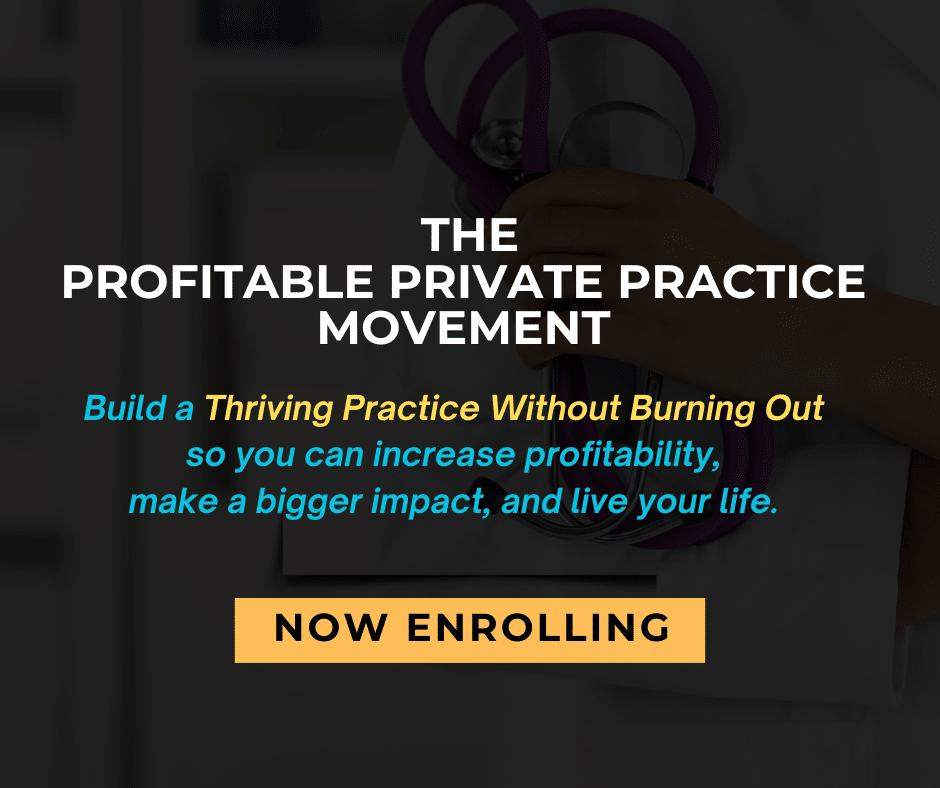
So, you want to become a motivational speaker?
Here’s some good https://blog.marketresearch.com/u.s.-motivational-speaking-market-worth-1.9-billion, according to marketresearch.com’s forecast. Marketdata estimates that while the U.S. motivational speakers’ market generated an estimated $1.9 billion in 2019, the value of the professional speaking industry will grow at a 4.1% average annual pace, reaching $2.30 billion by 2025.
I think we, as doctors, are ideally suited to motivate and inspire. After all, we do this every day as we care for our patients, their families, our team members, and our staff.
Of course, a motivational speaker typically speaks to a larger audience than we do daily. Still, the seeds of what it takes to be a professional speaker are already there for many of us.
The best motivational speakers have a story that packs an emotional punch and sticks with their audience long after they’ve heard it. The listener is spurred to make a change, do something better, take action.
And when it comes to being a great motivational speaker, the one word that seems to come up repeatedly is passion. Passion for your message and belief in what you’re talking about. If you have this type of passion, the rest is a matter of getting the proper skill set.
One of the most incredible motivational speakers of our time was Dr. Kenneth McFarland. He was known as the “Dean of American Public Speakers,” and his book, Eloquence in Public Speaking, is still regarded as one of the best books written on the subject.
He writes,
“Without…passion, all the public speaking classes in the world won’t be able to help you impress your audience.”
What Do You Need to Become a Motivational Speaker?
Apart from the apparent need to have expertise in your field, what intangibles do you need to become a speaker worth listening to?

You need a “why.” What drives you to want to share your message with others? What subject(s) are you passionate about? How can your story and message benefit others? What actions can they take after listening to you?
You need a point of view. Some of the most powerful motivational speeches are the story of loss and recovery, trauma and healing, failure and redemption. Your unique experiences are what shape your perspective. Sharing them so others can benefit is the great gift of storytelling.
Where’s Your Expertise?
The first rule of being an in-demand motivational speaker is that topic specialization is more important than general knowledge. Think drilling narrow and deep into your expertise rather than broad and shallow. Understand your unique niche that revolves around your passion and your expertise.

Beyond your expertise as a physician, what experiences have you accumulated throughout your career? For example, do you work in private practice with a team of support health workers? In a hospital setting? What are your areas of responsibility? Do you lead a team? Do you collaborate as part of a team?
What are you good at doing? What are you passionate about, and what unique perspective do you have to offer? The quality of questions you ask yourself will help uncover where your expertise lies, and it may be greater than you think at first.
The answers to these questions will help you zero in on what you’ll talk about as a motivational speaker.
Who’s Your Ideal Audience?
Once you determine your niche, identifying your ideal audience becomes much more manageable.

Some questions to ask around identifying your ideal audience are:
- Who could benefit from what you have to say?
- What’s their age range?
- What’s their career?
- Where do they live?
Different audiences have differing dreams, fears, and goals, and how you speak to motivate them depends on understanding who is in the room with you. Here are four types of audiences and how you may tailor your speech to each of them:
1. Business Team Audience:
Helping this audience involves developing a common purpose and cultivating enthusiasm for working together. They look for encouragement and guidance and benefit from hearing how others learned or invented a new way of working together that led to success.
2. Personal Development Audience:
This audience looks for inspiration and guidance on making changes in how they see the world and its place. By offering them your inspiring story of overcoming adversity, you can motivate them to take action and make personal changes.
3. Community Audience:
Educating the public about social and community issues gives them the power to take positive action and rallies people together for a good cause.
4. Youth Audience:
Students can be inspired to lead healthy lives and are open to hearing positive guidance about ambition and positioning themselves for their future.
Once you’ve figured out what your ideal audience looks like, research the social media platforms they typically use and specific topics that interest them. This research will help you plan how to reach them effectively.
It’s important to know that your ideal audience is never everyone. No matter how good you are at speaking, you will not motivate everyone. When you zero in on inspiring one specific type of person, you are more likely to make a true impact.
Defining your target audience will also help you determine what examples to use to communicate your points effectively. And when you know your target audience, you’ll also be able to figure out where to find them — such as a marketing conference or another industry event.
What’s Your Core Message?
Your core message needs to revolve around what inspires others about your story. Your story forms the foundation of every speech you will ever give. It is your core message that ties directly to your ideal audience.

A powerful way to connect with your audience is to relay a story about a personal struggle. One that is also the individual struggles of those you’re talking to. Sharing how you overcame that struggle will inspire and motivate others to take the action they need to make their changes.
What Will You Say?
Experts agree that while gifted speakers look like they speak spontaneously, that’s never the case. Instead, talented speakers spend time organizing and crafting what they will say and practice until it looks and sounds effortless.
Several frameworks are available online for speech-writing, but they tend to share the same general structure.

Many speechwriters craft their talk in multiple layers, starting with a broad view, going back over and adding in ideas, etc., and then going back in to fill in finer details. The benefits of writing a speech in this way allow you to tailor your talk to the time allowed. The longer you plan to speak, the more details and information you include.
- Distill your topic into one sentence.
- Brainstorm and list 15+/- talking points, ideas, phrases, statistics, examples, and illustrations that support your topic statement.
- Shortlist five key points from the above list that will impact your speech most.
- Organize these critical points, and sort those points in the order that you’ll introduce them.
Once you have a solid topic and five strong critical points listed in order, you’ll need to clarify your point of view. An example of a point of view is, “To survive the stress of healthcare in the 21st century, every doctor needs to be the entrepreneur of their career.”
Every one of the five key points should reference your point of view. For example, “If we as doctors don’t also treat our vocation as a business, the statistics of burnout and suicide for healthcare providers will only continue to climb.” You will also want to give your reasons for having this point of view.
You can now add your illustrations, examples, statistics, talking points, ideas (and humor) to each talking point.
Before you move on to your next key point, reinforce your point of view again, in a different way.
The most powerful speakers today know people are best motivated by stories. Of course, that makes sense, given how compelling novels and movies continue to be!
The best story you can share is your story. Speak in the first person and from your own experience in your expertise. Include passion and compassion.
Motivational speeches can be life-changing when your story is the conduit through which your listeners can change their story for the better.
Here’s a template incorporating the above speech-writing suggestions:
| Introduction | Your intention | Capture your audience with a startling statement, statistic, etc |
| Your point of view | What position you’ll be taking | |
| Your story | Share some of how you got to where you are today | |
| Key points | Quick overview of the key points you’ll be talking about | |
| Key points #1 – #5
(or as many as you have) | Introduction | Overview of key point |
| Your point of view | Specific position relating to this key point | |
| Examples | Talking points, ideas, phrases, statistics, examples, illustrations, plus personal anecdotes | |
| Your point of view | Reinforce | |
| Conclusion | Your intention | Restate what you want to share |
| Your point of view | Again | |
| Motivate to action | Invite your listeners to start doing something, stop doing something, change something, etc |
How Will You Say It?
Most of us will also need to spend time crafting how we speak and what we say.
Fully forty percent of Americans have glossophobia, the fear of public speaking. And while a popular suggestion for overcoming this fear is to picture your audience naked, there are better ways to manage sweaty palms that are easier on your imagination.

The more prepared you are, the less uncertainty and anxiety you’ll feel when standing in front of a crowd.
Preparation falls into these three categories:
- Your talk
- Your skills
- Practice, practice, practice
Let’s go over each of them.
1. Your Talk
The more confident you are that what you will say is powerful and impactful, the more confidence you will have when you’re saying it. This is where the craft of writing comes in.
Don’t be content with your speech until you feel you have included the very best information, the most accurate facts, compelling examples and statistics, and, ultimately, the best of yourself.
Write with clarity and succinctly. Read inspirational material and consider taking a speech writing course.
You can also create a PowerPoint or Google Slides presentation to support your motivational speech. As helpful as the slides may be for your audience, they are an ingenious way to keep you on track and give you something to do with your hands.
2. Your Skills
Few of us are natural-born speakers, but many resources are available to sharpen your skill. From joining a local Toastmasters International in your community to watching how the best of the best do it, it’s well worth investing time and energy to make sure your content and delivery are on point.
Zig Ziglar was a legendary author, mentor, and motivational speaker, as seen from his Life-Changing Advice. Give it a watch, if you haven’t.
3. Practice, Practice, Practice
Once you’ve written the best speech, you have in you and learned all you can to develop your speaking abilities, practicing your speech might be the most helpful activity you can do to calm your nerves and ignite your confidence.
First, try delivering your speech in your mirror.
And remember to:
- Breathe
- Pause
- Prune any “ums,” “ahs,” and “likes.”
- Slow down
- Relax
- Speak clearly and don’t mumble
Once you’re comfortable with your mirror audience, ask a small group who loves you to listen to your talk. They’re now your mirror, and their response can show you how you’re doing.
And remember to:
- Not be afraid of the silence
- Not talk through their laughter when your joke hits home
- Involve them
Who Wants to Listen to You?
Now that you know the message you want to share and you’ve worked on your speech-delivery skills, it’s time to find your audience. They are likely not lining up outside your door yet, but there are many opportunities in your community where you can start your speaking career.
Brian Tracy is the Chairman and CEO of Brian Tracy International, specializing in the training and development of individuals and organizations. He is considered the best of the best when it comes to being a great and inspiring speaker, and he recommends speaking,
“…Anywhere they will have you…300 free speeches as fast as you can.”
Start by offering to speak at your local Rotary Lion’s Club, non-profit associations, business organizations, networking engagements, etc. Anywhere that will have you.

Beyond your local community, create an online presence for yourself. For example, many motivational speakers use their own name as their business name, as they are the brand and the product.
You can set up a website and YouTube channel to make yourself known. Make a 2-4 minute highlight demo video and longer-form videos to grow an audience.
Once you have established a presence online, you can apply to speak at events, conferences, and conventions.
Executive Speakers and Keynote Speakers are two sites listing the “Top thought leaders and experts on healthcare”. Check out their profiles to be motivated and inspired!
What passion do you have that could benefit others? Give me a call, and we can talk about it together.


